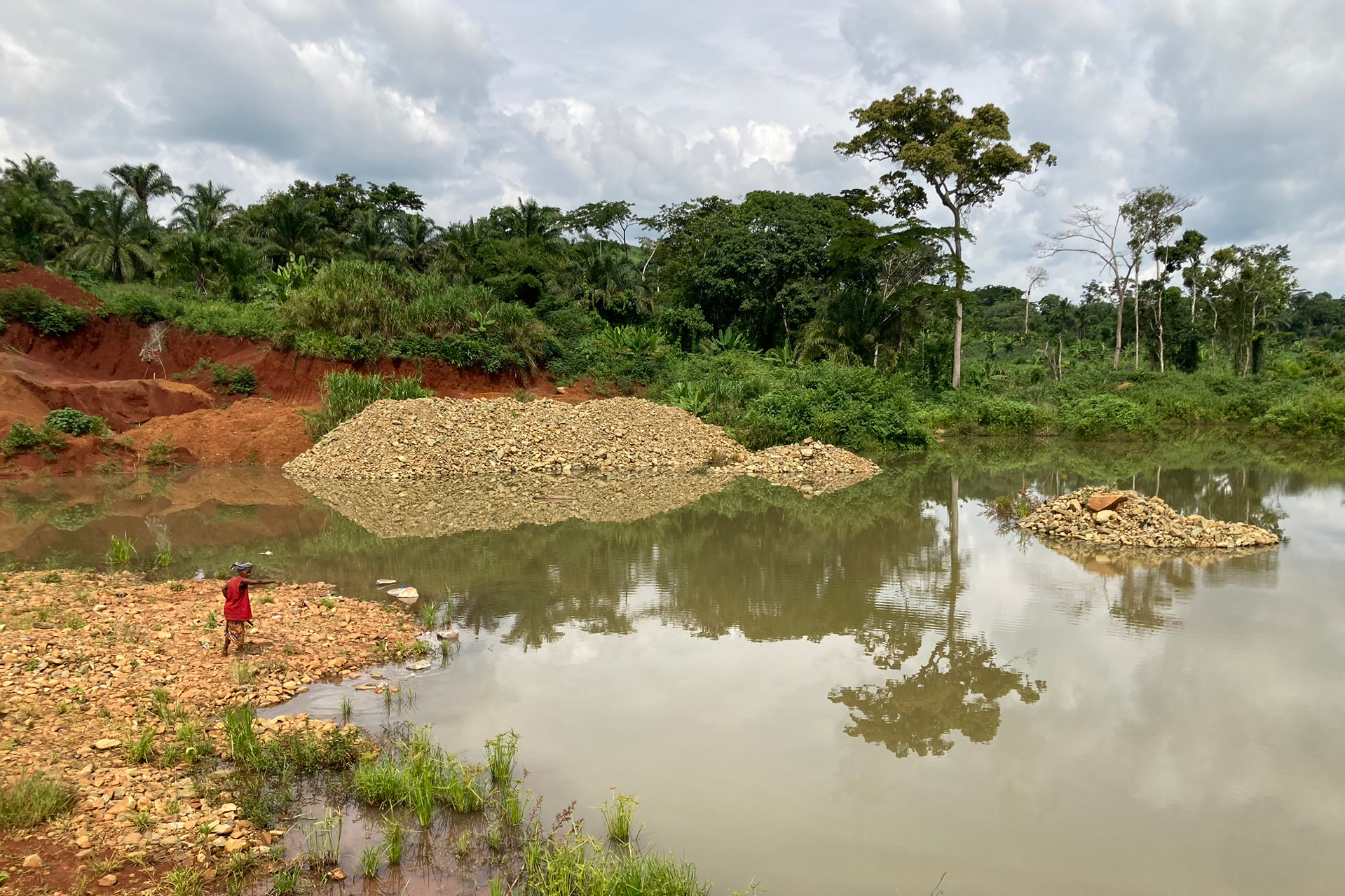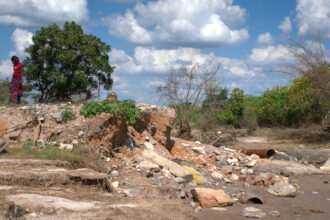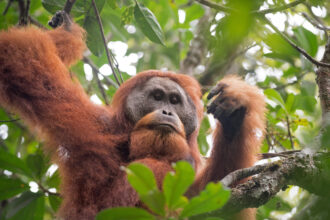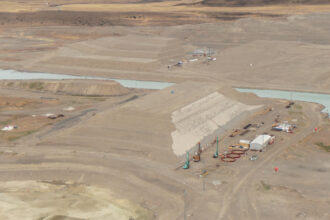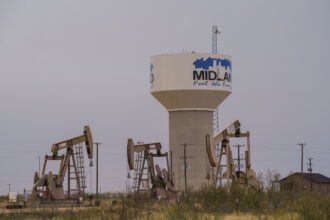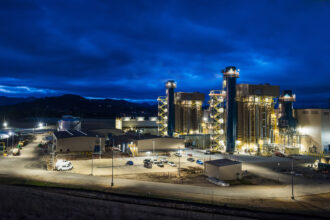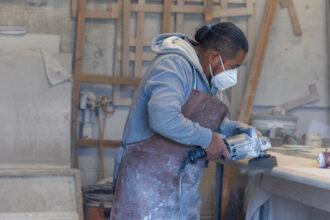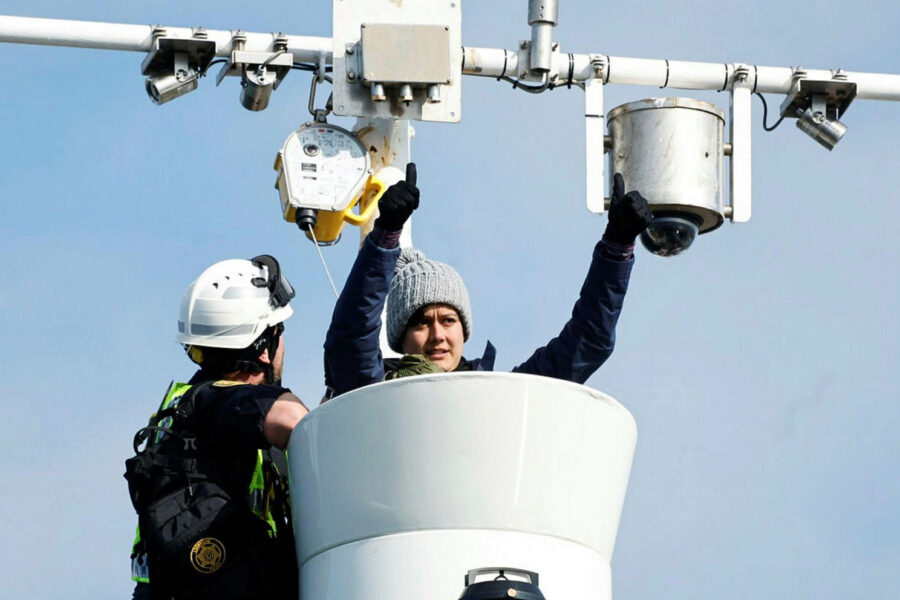Planet China: Seventh in a series about how Beijing’s trillion-dollar development plan is reshaping the globe—and the natural world.
Chinese miners are illegally extracting Congolese gold on a vast scale, according to a new report from the nonprofit PAX, which also accuses the Democratic Republic of the Congo of weak and ineffective governance.
The report, published Wednesday by the Netherlands-based peace advocacy group, said that semi-industrial gold mining operations have devastated at least 155 miles of rivers and streams in Haut-Uélé, a province where poverty is widespread and where armed conflict and violence have roiled the population for decades.
“Chinese nationals and their Congolese partners have led this gold rush, with the protection of Congolese army and police officers,” the report said.
The DRC embassy in Washington, D.C., did not respond to a request for comment.
Asked about whether Chinese nationals are engaged in illegal, semi-industrial gold mining in northeastern DRC, Liu Pengyu, spokesperson for the Chinese embassy in Washington, said in a written statement: “I’m not aware of the specifics you mentioned. Please refer to the competent authorities for further comments.”
He added: “As a principle, the Chinese government consistently requires Chinese nationals abroad to abide by local laws and regulations and to refrain from any illegal activities.”
China’s Foreign Ministry said virtually the same thing in January when asked about similar illegal gold mining operations in a different DRC region, Kivu.
A surge in illegal gold mining in Haut-Uélé began in 2020, with Congolese mining enterprises presented as small-scale, artisanal “cooperatives” using Chinese financial and technical backing, the report said. Congolese law allows artisanal mining cooperatives of Congolese nationals to operate in certain areas if licensed.
But using satellite imagery and on-the-ground investigations, PAX documented the use of heavy machinery and large-scale excavations. In some cases, entire riverbeds were moved. Chinese entities, the report said, use the cooperatives as a front for illegal, much larger operations.
“The cooperatives are just labels,” a local official in Watsa territory, part of the province, told PAX. “The Chinese nationals are the ones who do everything.”
Photographs taken by researchers depict dredged, barren landscapes with massive mounds of excavated materials, while satellite images show gashed forest with massive orange-gold scars where rivers once flowed. The impacted waterways drain into the Congo River, part of the larger Congo Basin, a crucial counterweight to global warming and home to endangered and endemic species like pangolins, gorillas and okapi.
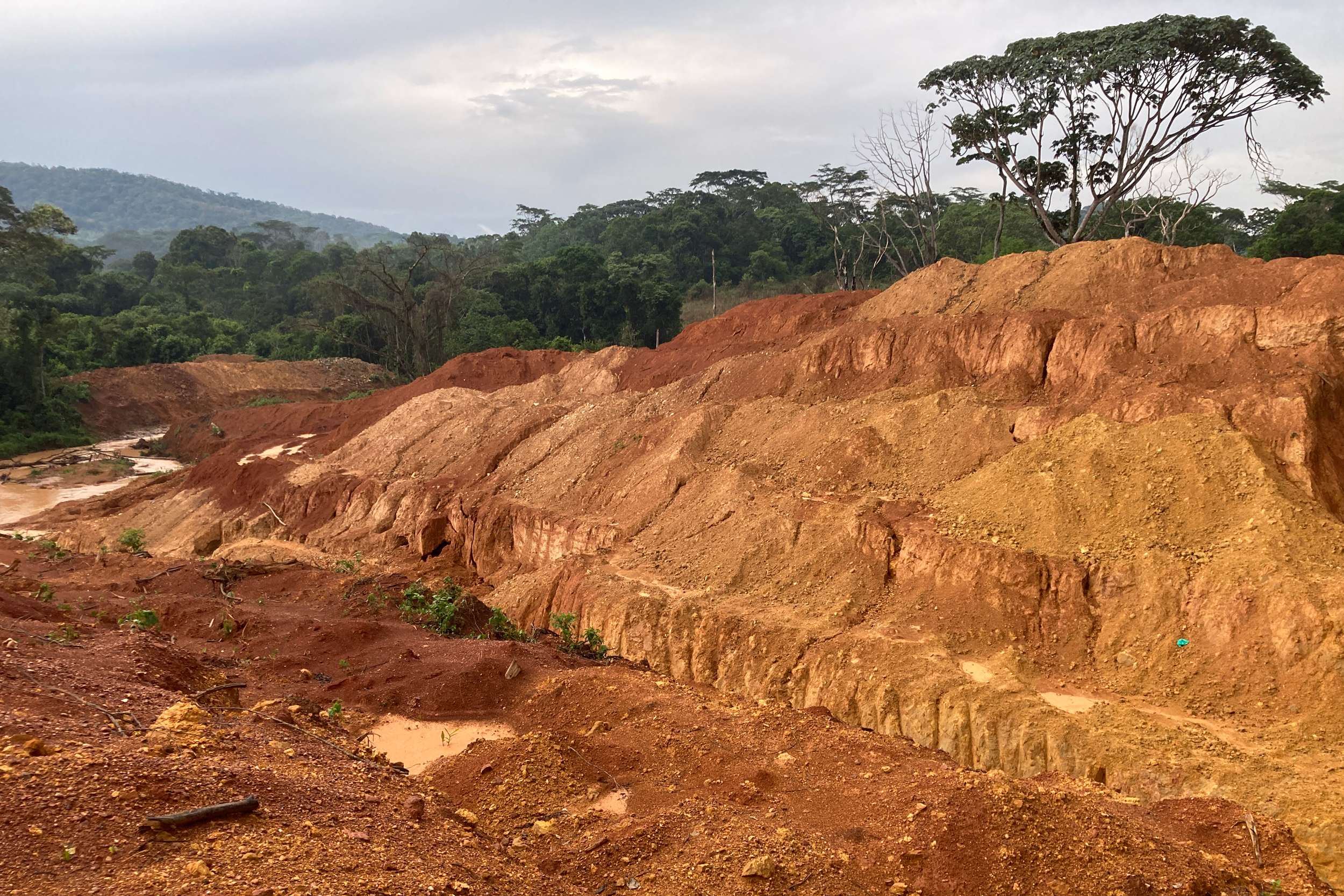
China has invested heavily in the DRC through its Belt and Road Initiative, a trillion-dollar overseas investment program. Through the initiative and its predecessor program, China has provided more than $11 billion in loans to the DRC government since 2000, with the largest share going to mining and construction projects.
Some of the legitimate Chinese businesses have been tied to environmental destruction overseas. Beyond that are the nationals linked to illegal mining, poaching and deforestation. China is one of the world’s largest consumers of gold.
Illegal Chinese gold mining began in other parts of the DRC around 2013, said Sara Geenen, professor at the Institute of Development Policy at the University of Antwerp and co-director of the Expertise Center on Mining Governance in the DRC.
Geenen, who has written extensively about illegal gold mining, said growing demand and rising prices for gold are driving a global mining rush.
“Chinese investors come in with machinery such as dredges and make a partnership with Congolese miners’ cooperatives,” then operate in the DRC “under the protection of politicians, chiefs and/or army and police men,” Geenen, who was not involved in the PAX report, said in an email.
PAX said the semi-industrial operations they documented took place without the necessary governmental permits, based on a review researchers did of publicly available mining data from the Congolese Mining Cadastre, which records all mining rights.
The number of Chinese mining enterprises and the scale of their operations in the DRC has dramatically increased over the past decade, Geenen said. New technologies and mechanization, she added, are causing “a great deal of environmental and human harm.”
An Environmental and Public Health Crisis
The illegal gold mining operations documented by PAX left behind “kilometers-long chains of mining pits that have since flooded,” the report stated. Gold mining operations use highly toxic chemicals like mercury and cyanide to extract gold from the sediment.
This contamination poses enormous risks to residents and ecosystems. Mercury travels far distances through the environment and bioaccumulates, meaning its concentration grows as it moves up the food chain. Larger mammals, including humans, are at risk of having dangerously high concentrations of the heavy metal in their bodies.
“No scientific study has, to PAX’s knowledge, been conducted on the impacts of these operations in Haut-Uélé on human health and the environment,” the report said.
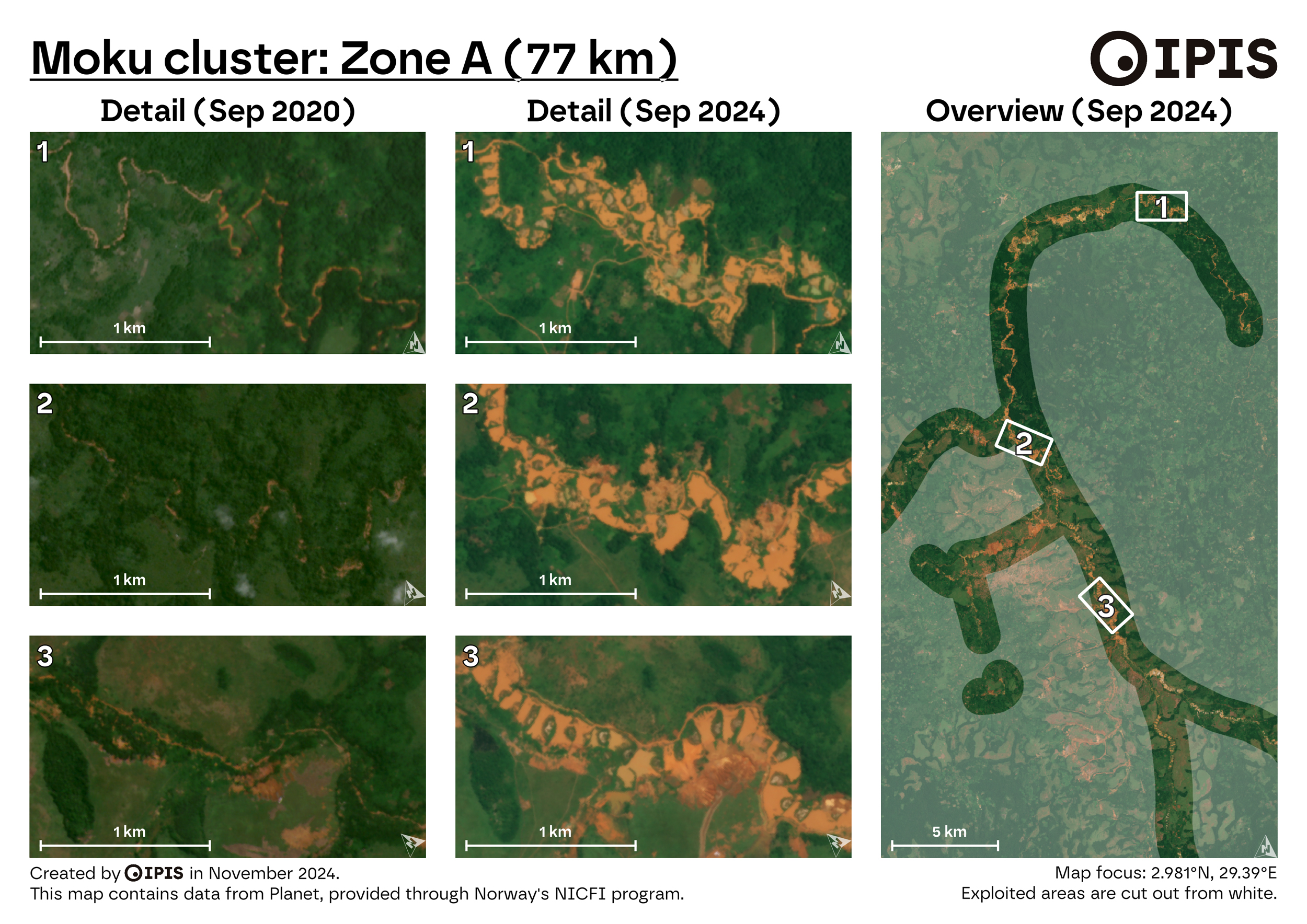
The impacted region is one of the poorest worldwide, with about 88 percent of children in Haut-Uélé province living in poverty, according to the United Nations Children’s Fund. Exposure to mercury can cause neurological issues, especially in children, and exacerbate malnutrition.
“There are serious health problems linked to illegal activities,” including malaria, typhoid and cholera, said a DRC youth activist from Haut-Uélé who asked not to be identified out of concern for his safety. His comments to Inside Climate News were made in writing, in French. Locals living in remote areas, he added, generally must travel “20 kilometers or further to find health facilities to get treatment.”
Local rivers, he said, are drying up while “tree leaves are no longer green but yellowish” in affected areas.
“Mining carried out by the Chinese destroys everything in its path: forests, fields, water, and in this case, the population is sacrificed and human rights are violated,” he said.
The flooded mining pits have also caused a direct physical danger.
Residents told researchers that people, including young children, have drowned in the flooded pits. Unlike the naturally shallow rivers and streams where locals bathe and wash clothes, the mining pits are unexpectedly deep.
“As in many other places in Congo, many people in Haut-Uélé cannot swim,” said one of the PAX researchers, who asked that his name not be used out of concern for his safety.
This story is funded by readers like you.
Our nonprofit newsroom provides award-winning climate coverage free of charge and advertising. We rely on donations from readers like you to keep going. Please donate now to support our work.
Donate NowPAX has worked on armed conflict and other issues in the DRC for decades, including supporting peace negotiations and promoting defections from the Lord’s Resistance Army, a Ugandan rebel group that has abducted, mutilated and murdered thousands of civilians. Last year PAX released a report tracking thousands of forced evictions linked to a Canadian company’s gold mining operations.
“Conducting this kind of research is often difficult in general in the DRC,” the researcher said, but accessing the illegal mining sites was especially challenging because the sites “were protected by security forces, who manned roadblocks, blocking not only local community members, but also local state agents, who were left in the dark.”
Hundreds of Congolese military and police guard the operations, the report said. In some cases, local officials responsible for overseeing mining operations in the region have been denied access.
“They don’t want us to visit them. They set up their base [in the bush] and put the military on guard duty,” a local official in Watsa territory told PAX.
An officer with a DRC elite police unit also denied a PAX researcher access to a Chinese-run mining site in the Faradje territory, according to the report.
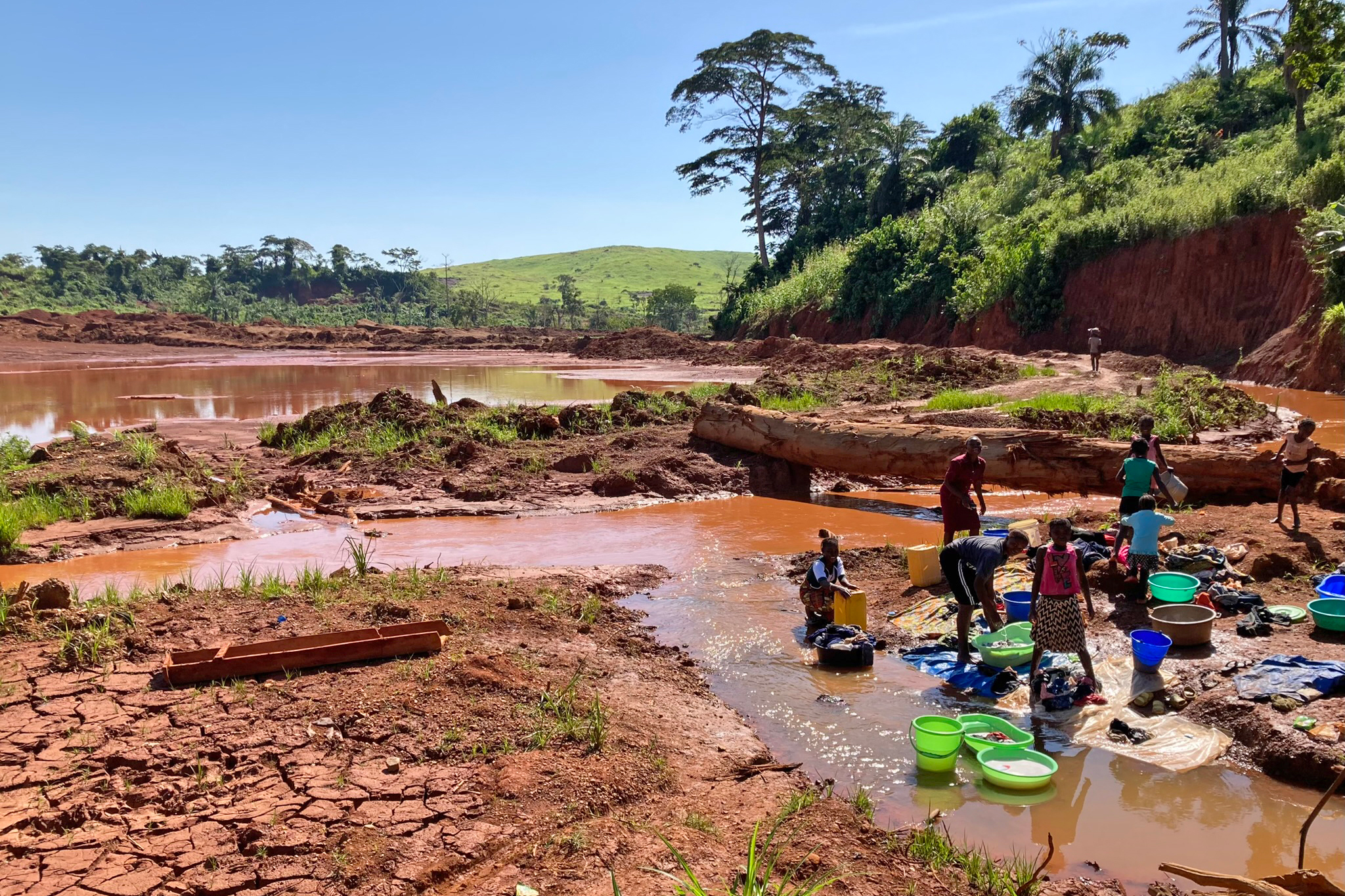
Tensions over land use in Haut-Uélé are high, the report said, with gold mining inflaming violence. Access to clean water, which was once free, has become a major problem in affected areas. Now, some residents must pay for water to cook, wash and drink, or risk using polluted water, the report said.
Mining operations have also severely damaged local farmers’ fields without providing proper compensation, the report said, pushing many deeper into poverty. A mother of eight told researchers that a machine destroyed her field in 2022.
“When I got there, I saw a machine demolishing everything! I cried and cried,” she told PAX.
“I begged them to let me have back even just the cassava that had been ripped up, but they refused. … They destroyed most of the field and left a small part, which I’m now trying to use to get by so that the children can survive.”
This article was updated Sept. 17, 2025, with a new comment from a local youth activist.
About This Story
Perhaps you noticed: This story, like all the news we publish, is free to read. That’s because Inside Climate News is a 501c3 nonprofit organization. We do not charge a subscription fee, lock our news behind a paywall, or clutter our website with ads. We make our news on climate and the environment freely available to you and anyone who wants it.
That’s not all. We also share our news for free with scores of other media organizations around the country. Many of them can’t afford to do environmental journalism of their own. We’ve built bureaus from coast to coast to report local stories, collaborate with local newsrooms and co-publish articles so that this vital work is shared as widely as possible.
Two of us launched ICN in 2007. Six years later we earned a Pulitzer Prize for National Reporting, and now we run the oldest and largest dedicated climate newsroom in the nation. We tell the story in all its complexity. We hold polluters accountable. We expose environmental injustice. We debunk misinformation. We scrutinize solutions and inspire action.
Donations from readers like you fund every aspect of what we do. If you don’t already, will you support our ongoing work, our reporting on the biggest crisis facing our planet, and help us reach even more readers in more places?
Please take a moment to make a tax-deductible donation. Every one of them makes a difference.
Thank you,


